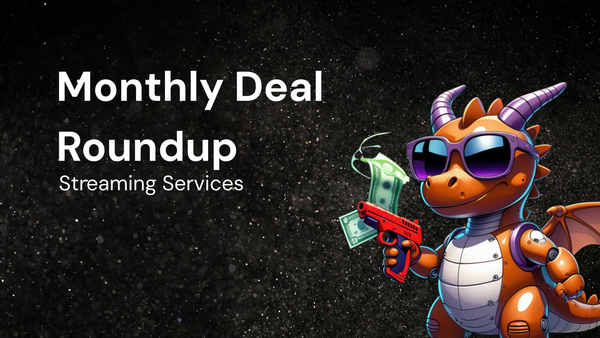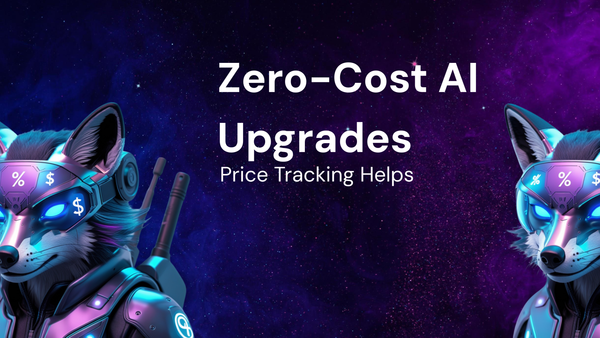Top 10 Email Marketing Services for Beginners

Top 10 Email Marketing Services for Beginners: Nurture Your Audience and Grow Your Business
Email marketing, despite the rise of social media and instant messaging, remains a cornerstone of successful digital marketing strategies. It's a direct line to your audience, allowing you to build relationships, promote your products or services, and drive conversions. However, for beginners, navigating the world of email marketing can feel overwhelming. Choosing the right email marketing service (ESP) is crucial. It can be the difference between a streamlined, effective campaign and a frustrating, time-consuming mess.
This comprehensive guide dives into the top 10 email marketing services specifically tailored for beginners, focusing on features, ease of use, pricing, and overall suitability for those just starting their email marketing journey. We'll explore the strengths and weaknesses of each platform, helping you make an informed decision that aligns with your business needs and budget.
Why Email Marketing Matters for Beginners
Before we jump into the list, let's quickly recap why email marketing is so essential, especially for beginners:
- Direct Communication: Unlike social media algorithms that control who sees your content, email allows you to communicate directly with subscribers who have explicitly chosen to hear from you.
- Targeted Messaging: Segment your audience based on demographics, behavior, or interests to deliver highly relevant content that resonates and drives engagement.
- Cost-Effective: Compared to other marketing channels, email marketing offers a high return on investment (ROI), making it an affordable option for businesses of all sizes.
- Measurable Results: Track key metrics like open rates, click-through rates, and conversions to understand what's working and optimize your campaigns for better performance.
- Build Relationships: Consistent, valuable email communication fosters trust and loyalty, turning subscribers into repeat customers and brand advocates.
What to Look for in an Email Marketing Service for Beginners
When choosing an ESP as a beginner, prioritize these key features:
- User-Friendly Interface: An intuitive drag-and-drop editor makes it easy to create visually appealing emails without coding knowledge.
- Pre-Built Templates: Access a library of professionally designed templates that you can customize to match your brand.
- Automation Features: Set up automated email sequences (e.g., welcome emails, abandoned cart reminders) to save time and nurture leads.
- List Management: Easily import, segment, and manage your subscriber list to ensure you're reaching the right audience.
- Reporting and Analytics: Track key metrics to understand campaign performance and identify areas for improvement.
- Affordable Pricing: Choose a plan that fits your budget and offers scalability as your business grows.
- Excellent Customer Support: Access responsive and helpful support channels (e.g., live chat, email, phone) to assist you with any questions or issues.
- Integration with Other Tools: Ensure the ESP integrates seamlessly with your website, CRM, and other marketing tools.
- Deliverability: A good ESP should have a high deliverability rate, ensuring your emails reach your subscribers' inboxes.
- Compliance with Regulations: The ESP should comply with email marketing regulations like GDPR and CAN-SPAM.
The Top 10 Email Marketing Services for Beginners
Now, let's dive into our list of the top 10 email marketing services for beginners:
1. Mailchimp:
- Overview: Mailchimp is arguably the most well-known email marketing service, and for good reason. It offers a robust set of features, a user-friendly interface, and a generous free plan.
- Key Features: Drag-and-drop editor, pre-built templates, automation features (welcome emails, abandoned cart), segmentation, A/B testing, reporting and analytics, integration with popular e-commerce platforms.
- Ease of Use: Highly intuitive and easy to navigate, even for beginners. The drag-and-drop editor is straightforward, and the platform offers helpful tutorials and resources.
- Pricing: Free plan for up to 2,000 contacts and 1,000 sends per month. Paid plans start at $13 per month, offering more features and higher sending limits.
- Pros: User-friendly, generous free plan, strong feature set, excellent automation capabilities, widely recognized brand.
- Cons: Pricing can become expensive as your list grows. Free plan limitations. Customer support on the free plan is limited.
- Verdict: A solid all-around choice for beginners due to its ease of use, free plan, and comprehensive features.
2. Sendinblue:
- Overview: Sendinblue is a powerful platform that combines email marketing with SMS marketing, making it a great option for businesses looking to reach customers across multiple channels.
- Key Features: Email and SMS marketing, drag-and-drop editor, automation workflows, transactional emails, segmentation, CRM features, landing page builder, A/B testing.
- Ease of Use: While not as intuitive as Mailchimp, Sendinblue is still relatively easy to use, especially with its drag-and-drop editor and helpful documentation.
- Pricing: Free plan for unlimited contacts and up to 300 emails per day. Paid plans start at $25 per month, offering more features and higher sending limits.
- Pros: Excellent value for money, includes SMS marketing, powerful automation features, CRM capabilities.
- Cons: Interface can be slightly less intuitive than Mailchimp. The free plan has a daily sending limit.
- Verdict: A great choice for beginners who need both email and SMS marketing capabilities at an affordable price.
3. Constant Contact:
- Overview: Constant Contact is known for its ease of use and strong customer support, making it a popular choice for small businesses and non-profits.
- Key Features: Drag-and-drop editor, pre-built templates, email automation, list management, event management tools, social media integration, reporting and analytics.
- Ease of Use: Extremely user-friendly, with a simple and intuitive interface.
- Pricing: No free plan. Plans start at $9.99 per month.
- Pros: Very easy to use, excellent customer support, strong email automation features.
- Cons: No free plan, can be more expensive than other options. Some features are limited compared to competitors.
- Verdict: A good option for beginners who prioritize ease of use and excellent customer support, but be prepared to pay a premium.
4. ConvertKit:
- Overview: ConvertKit is specifically designed for creators – bloggers, authors, and online course creators – with a focus on building relationships and selling products.
- Key Features: Email automation, landing page builder, forms, segmentation, tagging, email sequences, integrations with popular platforms, A/B testing.
- Ease of Use: Designed with simplicity in mind, making it easy for creators to set up email marketing campaigns and automate their sales funnels.
- Pricing: No free plan. Plans start at $29 per month.
- Pros: Powerful automation features, specifically tailored for creators, excellent segmentation and tagging capabilities.
- Cons: No free plan, can be more expensive than other options. The email design options are more limited.
- Verdict: An excellent choice for creators who need a platform that can handle complex email marketing automation and sales funnels.
5. AWeber:
- Overview: AWeber is another long-standing email marketing service that offers a solid set of features and a focus on deliverability.
- Key Features: Drag-and-drop editor, pre-built templates, email automation, segmentation, list management, reporting and analytics, landing page builder, A/B testing.
- Ease of Use: Relatively easy to use, with a clean and intuitive interface.
- Pricing: Free plan for up to 500 subscribers and 3,000 emails per month. Paid plans start at $19.99 per month.
- Pros: Good deliverability rates, reliable platform, free plan available.
- Cons: The drag-and-drop editor can be less flexible than some competitors. The free plan has limitations.
- Verdict: A solid option for beginners who need a reliable and affordable email marketing service with good deliverability.
6. GetResponse:
- Overview: GetResponse is an all-in-one marketing platform that includes email marketing, landing pages, webinars, and marketing automation features.
- Key Features: Email marketing, marketing automation, landing page builder, webinar platform, CRM features, e-commerce integrations, A/B testing.
- Ease of Use: While packed with features, GetResponse is still relatively easy to use, with a drag-and-drop editor and helpful tutorials.
- Pricing: No free plan. Plans start at $15.58 per month.
- Pros: All-in-one marketing platform, powerful automation features, includes webinar platform.
- Cons: Can be more expensive than other options. The interface can feel overwhelming at times due to the vast array of features.
- Verdict: A good choice for beginners who need a comprehensive marketing platform with email marketing, landing pages, and webinar capabilities.
7. Drip:
- Overview: Drip is an e-commerce CRM designed for online stores. It focuses on personalized email marketing and automation to drive sales.
- Key Features: Email marketing automation, e-commerce CRM, segmentation, tagging, email sequences, integrations with popular e-commerce platforms, A/B testing.
- Ease of Use: While powerful, Drip can be more complex to learn than some other options. However, it offers excellent resources and support to help users get started.
- Pricing: No free plan. Plans start at $39 per month.
- Pros: Powerful e-commerce CRM features, excellent automation capabilities, highly personalized email marketing.
- Cons: More complex to learn, no free plan, can be more expensive than other options.
- Verdict: An excellent choice for e-commerce businesses that need a sophisticated email marketing platform with CRM capabilities.
8. MailerLite:
- Overview: MailerLite is known for its simplicity and affordability, making it a great option for beginners on a tight budget.
- Key Features: Drag-and-drop editor, pre-built templates, email automation, segmentation, list management, landing page builder, pop-up forms, A/B testing.
- Ease of Use: Very easy to use, with a clean and intuitive interface.
- Pricing: Free plan for up to 1,000 subscribers and 12,000 emails per month. Paid plans start at $10 per month.
- Pros: Very affordable, easy to use, includes landing page builder and pop-up forms.
- Cons: The email design options are more limited compared to some competitors.
- Verdict: An excellent choice for beginners on a budget who need a simple and affordable email marketing service.
9. Moosend:
- Overview: Moosend is a user-friendly email marketing platform that offers powerful automation features and a focus on e-commerce.
- Key Features: Drag-and-drop editor, pre-built templates, email automation, segmentation, list management, e-commerce integrations, A/B testing, reporting and analytics.
- Ease of Use: Relatively easy to use, with a clean and modern interface.
- Pricing: Free plan for up to 1,000 subscribers. Paid plans start at $9 per month.
- Pros: Affordable, good automation features, e-commerce focused.
- Cons: The number of pre-built templates is limited.
- Verdict: A good option for beginners who need a user-friendly email marketing platform with powerful automation features, particularly for e-commerce.
10. Benchmark Email:
- Overview: Benchmark Email offers a user-friendly interface and a good selection of templates, making it a solid choice for beginners.
- Key Features: Drag-and-drop editor, pre-built templates, email automation, segmentation, list management, landing page builder, reporting and analytics.
- Ease of Use: Very easy to use, with a simple and intuitive interface.
- Pricing: Free plan for up to 500 subscribers and 3,500 emails per month. Paid plans start at $13 per month.
- Pros: Easy to use, good selection of templates, free plan available.
- Cons: The automation features are less powerful than some competitors.
- Verdict: A good option for beginners who prioritize ease of use and a wide selection of templates.
Choosing the Right Email Marketing Service for You
Ultimately, the best email marketing service for you depends on your specific needs, budget, and technical skills. Consider the following factors when making your decision:
- List Size: How many subscribers do you have, and how quickly do you expect your list to grow?
- Budget: How much are you willing to spend on email marketing?
- Features: What features are most important to you (e.g., automation, segmentation, landing page builder)?
- Ease of Use: How comfortable are you with technology?
- Customer Support: How important is it to have access to responsive customer support?
Tips for Getting Started with Email Marketing as a Beginner
Once you've chosen an email marketing service, here are a few tips to help you get started:
- Build Your List: Offer valuable content, such as ebooks, checklists, or free trials, in exchange for email addresses.
- Segment Your Audience: Group subscribers based on their interests, demographics, or behavior to send more targeted emails.
- Create Engaging Content: Write compelling subject lines and email copy that resonates with your audience.
- Automate Your Emails: Set up automated email sequences to welcome new subscribers, nurture leads, and promote your products or services.
- Track Your Results: Monitor key metrics like open rates, click-through rates, and conversions to understand what's working and optimize your campaigns.
- Comply with Regulations: Always follow email marketing regulations like GDPR and CAN-SPAM.
Conclusion
Email marketing remains a powerful tool for building relationships, driving conversions, and growing your business. By choosing the right email marketing service and following these tips, you can confidently start your email marketing journey and achieve your business goals. Don't be afraid to experiment, learn from your mistakes, and continuously improve your email marketing strategy. Good luck!




